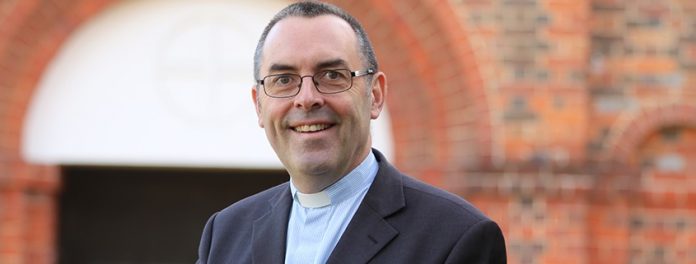In the middle of the street in the centre of Oxford, a small cross made of cobblestones marks the spot where Anglican leaders were tortured and killed for following their conscience and refusing to submit to laws which conflicted with their biblically-informed faith. As Bishops Latimer and Ridley, and Archbishop Cranmer burned, fellow clergy and former colleagues watched and approved, as Saul did at the stoning of Stephen.
The love of acceptance by the establishment, the need for power, the fear of being on the ‘losing’ side, have caused Christians in every age to keep quiet or even approve while their brothers and sisters suffer for Christ. In many cases, they have convinced themselves that conforming and adapting their own faith to the demands of the ruling ideology, and attempting to eradicate authentic Christianity, is a good thing, perhaps for the stability of the nation, or for the sake of “justice” according to the new definition of the governing elites.
I’ve been reflecting on this as a historical scene-setter to the intervention by Gavin Collins, Bishop of Dorchester, Suffragan of Oxford Diocese, in response to the naming on social media by Oxford Pride of those Oxford clergy and laity who signed the ‘Ministers’ Consultation Letter’ calling on the government to re-think plans to introduce a ban on ‘conversion therapy’. The key documents are here:
Minister’s Consultation Letter opposing ‘conversion therapy’ ban
BBC report: Oxford Pride condemns conversion therapy open letter
Statement by Bishop Gavin Collins on the Diocese of Oxford website
In his statement, the Bishop makes several remarks which are incomprehensible without detailed knowledge of the background. They operate as slogans or tropes, signalling which side he is on rather than bringing wisdom and clarity. He does not address the actual concerns expressed in the letter which has been signed by some of his own clergy, for example that the government’s reasoning for the ban conflates already-illegal coercive and violent attempts to suppress homosexuality with looser definitions which end up including freely chosen counselling and prayer, and any perceived criticism of LGBT ideology or promotion of heteronormativity. He does not explain why a letter expressing concerns about retentions of basic freedoms should cause “people” (presumably, LGBT people?) to feel “upset” and not “safe or welcome in our churches”.
The Bishop goes on to say that the motive of the authors of the letter is to “diminish people” with certain identities and lifestyles. Since the purpose of the letter is to point out the need to retain freedom to practice Christian teaching and pastoral care relating to sexuality, and the Church of England officially agrees with that teaching, does this mean that Gavin Collins believes the doctrines and canons of the church of which he is a bishop inherently diminish people?
He ends with what could be seen as a summary of his ‘gospel’ message in three points: all are made in God’s image, all are welcome in church, everyone has a place at the table. What does he mean? Is he only saying, for example, that a Muslim or atheist should be warmly welcomed in a church service? Or is he going further – that they should receive the sacraments without discrimination? That they are members of God’s kingdom by virtue of their common humanity? The Bishop clearly has in mind all three interpretations. Again, some background is needed here: the Bishop is being consistent with the move towards “radical inclusion” outlined in the letter by Diocesan Bishops to clergy in October 2018:



